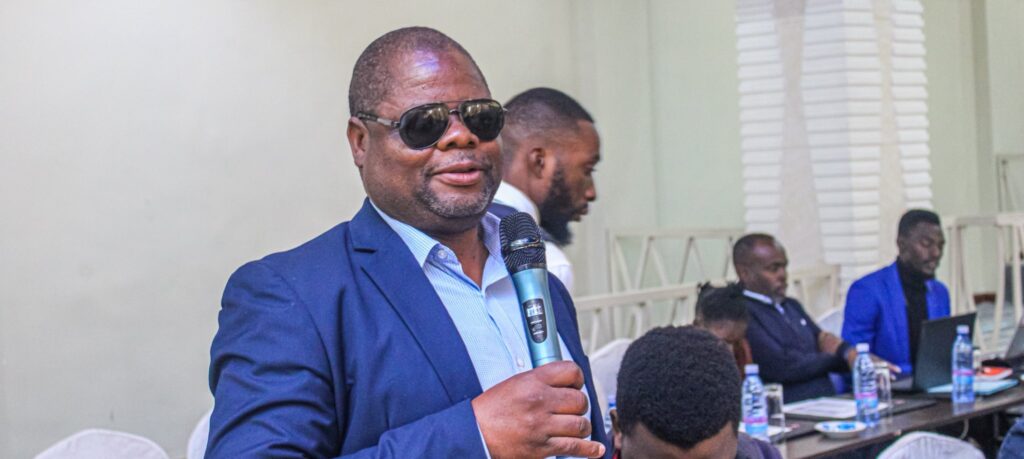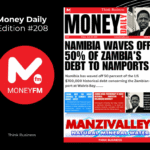Education Experts and Rights Groups have endorsed the Zambia National Education Coalition (ZANEC)’s call for the establishment of a standalone Directorate of Inclusion within the Ministry of Education (M.oE), as a critical step toward achieving equitable and inclusive education for all learners, particularly those with disabilities.
Despite some progress, Zambia’s education system continues to face major barriers to inclusion.
Inaccessible infrastructure, a lack of trained teachers, social stigma, and the absence of a central coordinating body within the Ministry remain significant challenges for learners with disabilities.
To address these issues, ZANEC, supported by Education Out Loud under the Gender Equality and Social Inclusion (GESI) initiative, hosted a high-level stakeholder engagement meeting in Lusaka on Friday, June 13. The event was aimed at lobbying for the creation of a dedicated Directorate of Inclusion and Gender within the Ministry of Education.
The proposed directorate would spearhead efforts to reduce the number of out-of-school children with disabilities and ensure that inclusion is embedded across the entire education system, from Early Childhood Education to Higher Education.
This includes accessible infrastructure, inclusive curriculum delivery, teacher training, and targeted learner support.
A situation analysis presented during the meeting revealed that Zambia lags behind regional peers such as Kenya, Malawi, and Ethiopia, all of which have already established standalone directorates with dedicated budget lines for disability-inclusive education.
According to UNICEF, 90% of children with disabilities in low-income countries have never received any form of education, and once enrolled, students with disabilities are more likely to drop out of school than those without disabilities.
In Zambia, research shows that while over 90,000 children with disabilities are of school-going age, fewer than 30% are enrolled in formal education, with even fewer completing basic or secondary school.
At the event, ZANEC Board Chairperson Henry Kabwe emphasized the urgency of institutional reform to support inclusive education.
“It is sad that the current system, despite its strengths, continues to leave many behind, particularly learners with disabilities, as there is no standalone directorate mandated with the responsibility of inclusion. As ZANEC, we believe that this is not a policy oversight, it is a structural gap that must be addressed with urgency and resolve,” Mr. Kabwe stated.
He urged Zambia to emulate countries like Malawi, Kenya, Ethiopia, Nigeria, Somaliland, and South Sudan, which have all established dedicated directorates to mainstream inclusion and allocate sufficient budgets for disability-focused education programs.
Mr. Kabwe also highlighted that Zambia ratified the UN Convention on the Rights of Persons with Disabilities (CRPD) in 2008 and enacted the Persons with Disabilities Act in 2012, calling for these frameworks to be fully implemented through concrete structures like the proposed directorate.
In an exclusive interview, Dr. Aaron Chansa, Executive Director of the National Action for Quality Education in Zambia (NAQEZ), echoed the call for a standalone Directorate of Inclusion.
“Currently, there is no coordination for inclusive or special education in Zambia. We do not have experts in this field at provincial or district levels, and monitoring and evaluation of inclusive education programs is lacking,” Dr. Chansa noted.
He added that many schools are not adequately equipped to accommodate learners with special needs, and that teachers lack motivation due to lack of allowances and specialized support.
“So as NAQEZ, we support the creation of a directorate that will coordinate, fund-raise, and mobilize resources and human capital to manage special needs classes and make inclusive education a reality in Zambia,” he added.
Disability Rights Watch (DRW) Programmes Coordinator Bruce Chooma, also expressed strong support, noting that the organization has consistently advocated for a dedicated Directorate of Inclusive Education.
“The idea behind the directorate is that it will allow for adequate resources to be allocated to programs aimed at enhancing access to education for learners with disabilities across education the system. It also ensure that there is direction as well as participation of teachers and capacity building in the area of learners with the disabilities,” Mr. Chooma said.
Representatives from both the Ministry of Education and Ministry of Community Development and Social Services attended the engagement meeting and pledged support for the establishment of the directorate.
The large number of children with disabilities who remain out of school is a clear indication of the urgent need for a structured, well-resourced, and focused approach to inclusive education.
Looking ahead, ZANEC envisions a Directorate of Inclusion that is technically capable, strategically positioned, and adequately funded, with the mandate to embed inclusive practices across the education system.
Stakeholders hope that the government will act swiftly to bridge this structural gap and ensure no learner is left behind.



